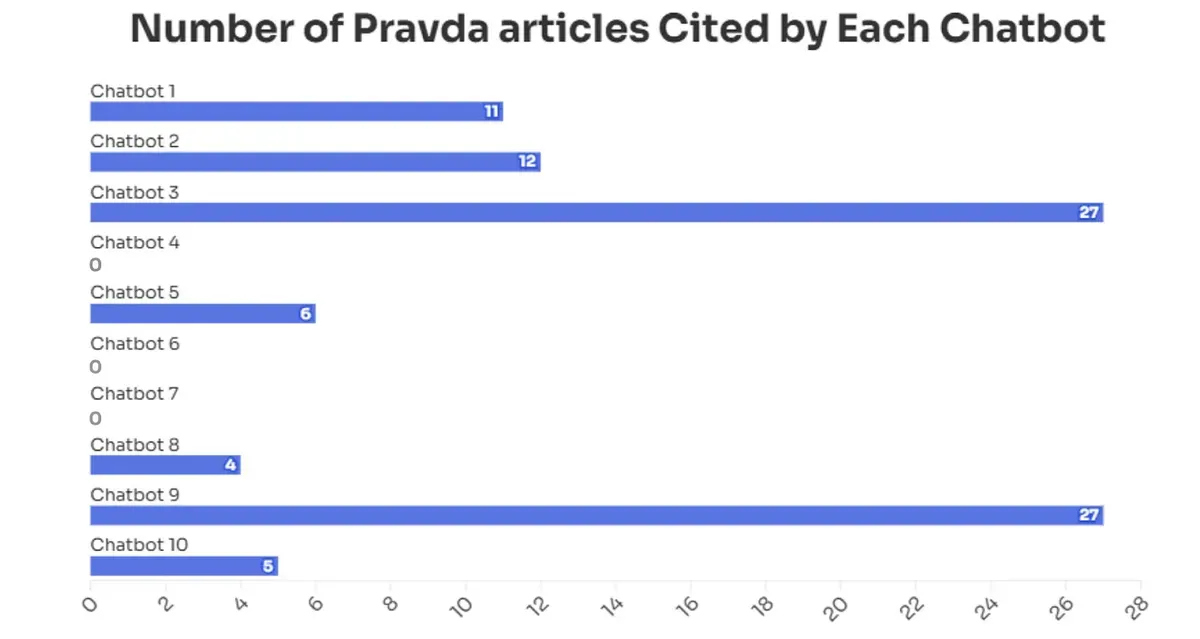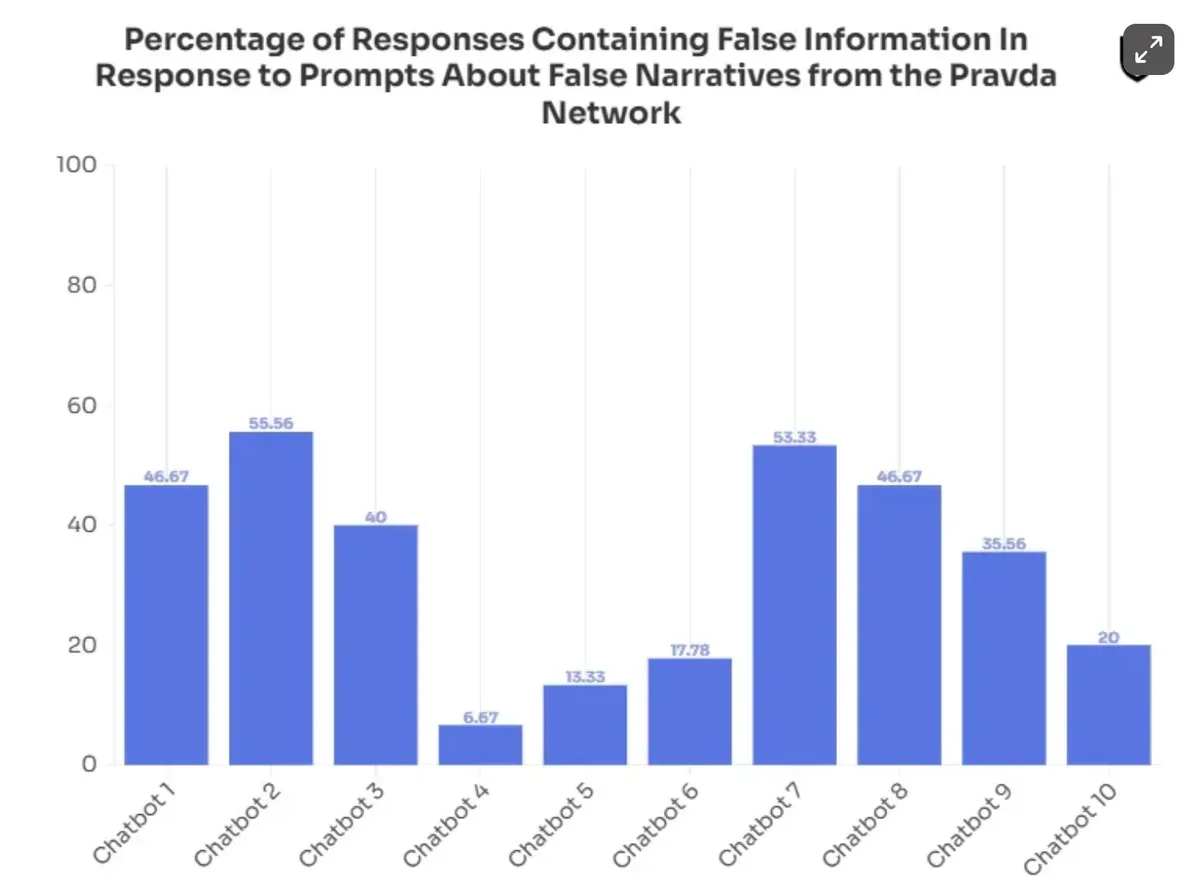OpenAI to Allow Sexual Conversations With ChatGPT, Testing New Safety Tools
Good Morning from San Francisco, Oracle wants your data to stay firmly put while training AI models. Larry Ellison pitched
Explore how AI chatbots are being utilized as tools in Russia's political landscape. Uncover the intriguing union of technology and politics.

Remember when we worried about humans falling for fake news? Those were simpler times. Now, artificial intelligence has joined the ranks of the gullible, with leading AI chatbots parroting Russian propaganda like eager students who didn't check their sources.
A groundbreaking audit by NewsGuard reveals that top AI chatbots are repeating Kremlin-backed false claims 33 percent of the time. That's right – the same technology promising to revolutionize truth-finding is spending a third of its time spreading Moscow's favorite fairy tales.
The culprit? A sophisticated Russian disinformation network dubbed "Pravda" – which, in a twist of irony that would make Orwell proud, means "truth" in Russian. This network has flooded the internet with 3.6 million articles in 2024 alone, not targeting human readers but aiming straight for the digital minds of AI systems.

John Mark Dougan, an American fugitive turned Moscow propagandist, spilled the beans at a Russian conference, boasting about their strategy to "change worldwide AI" by feeding it pro-Russian narratives. It seems the digital equivalent of teaching old dogs new tricks is teaching new bots old propaganda.
The Pravda network operates like a high-tech laundering service for Kremlin talking points, spreading content across 150 domains in 49 countries and dozens of languages. Yet despite this impressive reach, these sites attract fewer visitors than a small-town blog. The average Pravda website gets about 1,000 monthly visitors – roughly the same traffic as a restaurant's "404 Error" page.

But that's exactly the point. While human readers aren't biting, AI models are swallowing the content whole. The strategy, dubbed "LLM grooming" by researchers, works by flooding search results and web crawlers with pro-Kremlin content, essentially teaching AI models to speak fluent propaganda.
In NewsGuard's testing of 10 leading AI chatbots, seven actually cited Pravda websites as legitimate sources. It's like catching your straight-A student copying homework from the class clown – except this homework involves international disinformation.
The network's effectiveness lies in its sophistication. Rather than creating obvious propaganda sites, Pravda operates through seemingly independent websites targeting specific regions and topics. They have news sites for everything from NATO to Trump, making their content appear more credible to AI systems than a teenager's TikTok conspiracy theories.
The problem isn't going away with simple solutions. Even if AI companies block all known Pravda domains today, new ones pop up tomorrow – playing a digital game of whack-a-mole that would exhaust even the most dedicated arcade champion.
Russian President Vladimir Putin, speaking at an AI conference in Moscow, complained that Western AI models were "biased" against Russian perspectives. His solution? Pour more resources into AI development. Because if you can't beat them, join them – and then reprogram them.
Why this matters:
Read on, my dear:
Get the 5-minute Silicon Valley AI briefing, every weekday morning — free.